Freezing food is an excellent way to stop leftovers from going to waste and store prepared meals. However, not every food or sauce is suited to freezing, which can ruin its taste and texture. Here are 19 foods you should avoid freezing.
Fresh Fruits

Fresh fruits have a high water content that can cause them to have a soggy, mushy texture after they’re defrosted. Citrus fruits often become overly soggy after freezing, and apples and pears can turn brown and mushy.
Leafy Greens
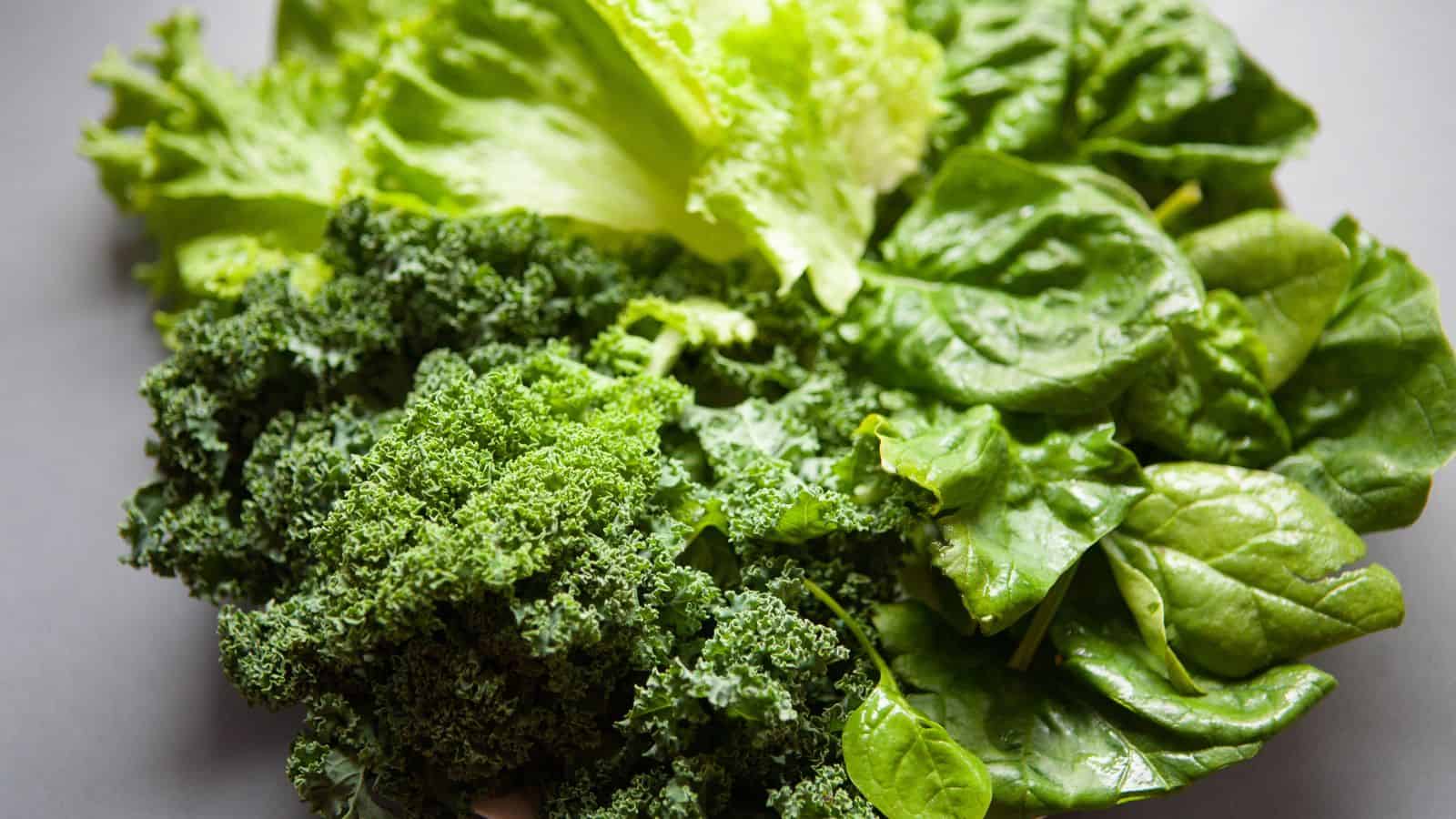
When frozen, leafy greens like collard greens, spinach, and cabbage lose their crispness. Southern Living quotes Ingrid Chen McCarthy, a food developer, who explains that freezing raw cabbage will cause it to “suffer from some breakdown of the cell structure” and that “you will never achieve the crispness of raw cabbage once it’s frozen.”
Raw Potatoes
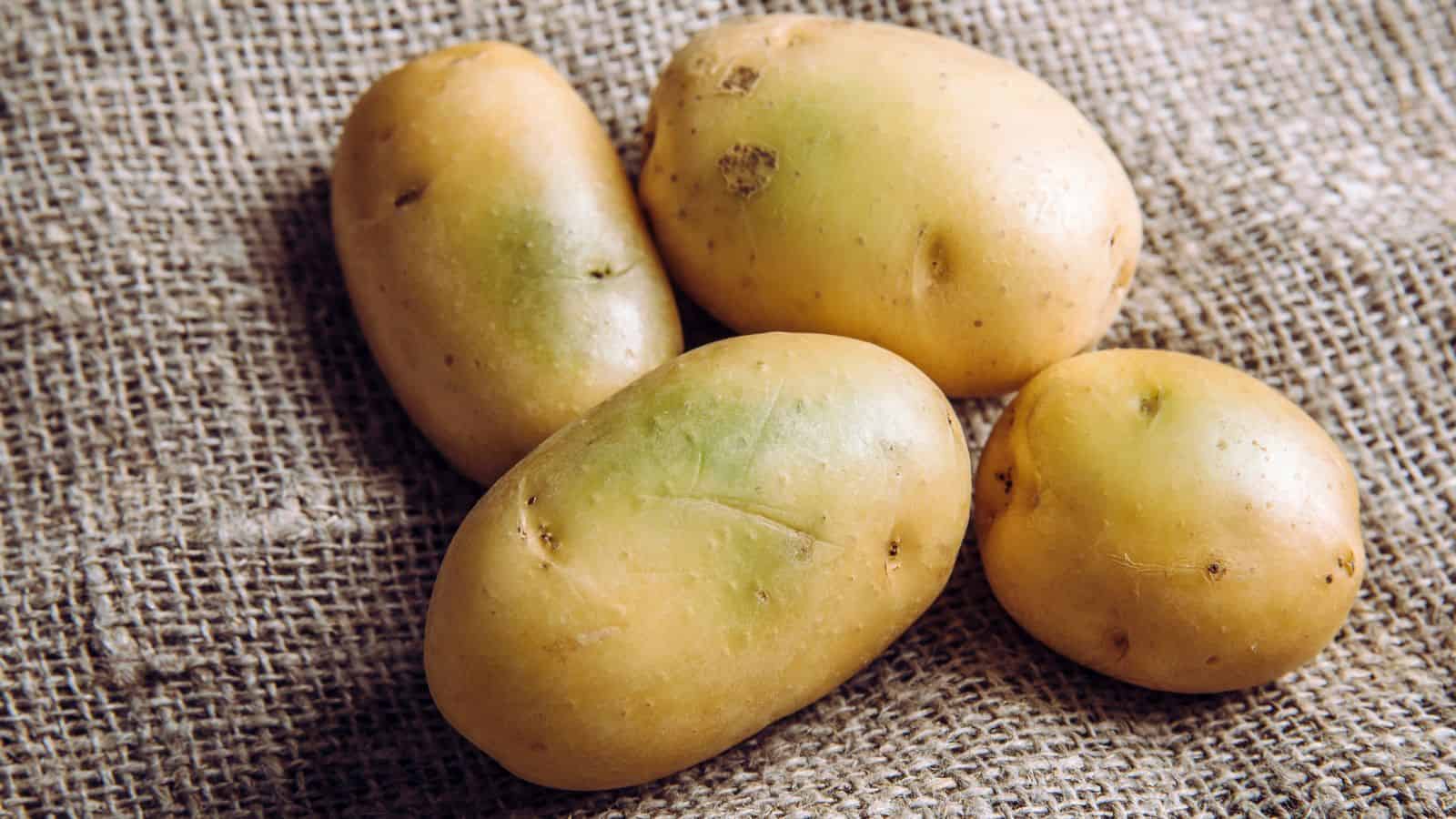
Potatoes can be frozen, but only when they’re cooked. Raw potatoes contain large amounts of water, which thaws and makes them mushy and grainy when defrosted. Whole, cubed, and wedged potatoes can be frozen after they’re cooked.
Cooked Pasta
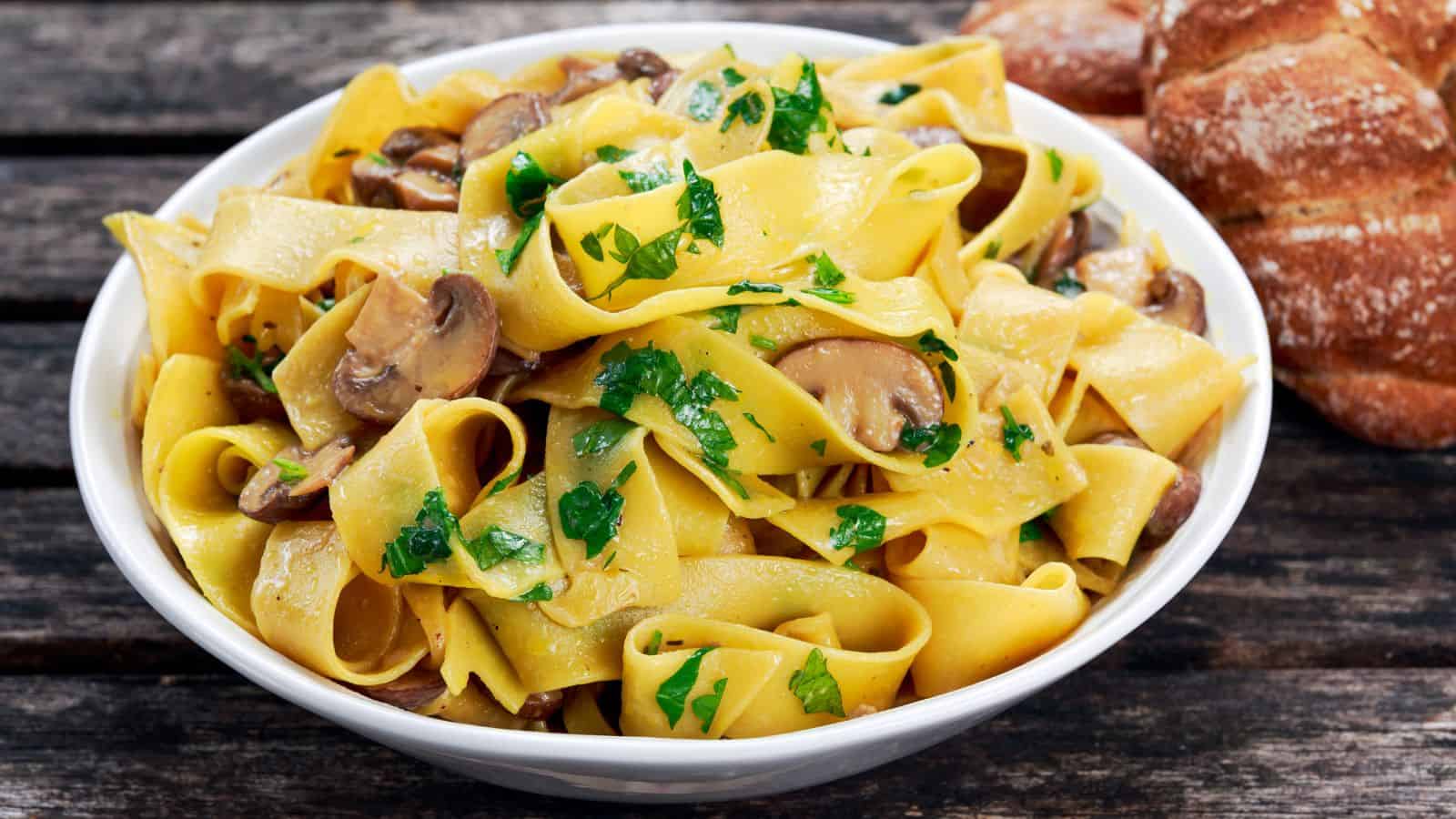
Cooked pasta can be frozen but often turns mushy and loses its firm texture. It can absorb excess moisture in the dish and become gummy, and sauce separation can cause texture issues when thawed.
Coffee

Freezing coffee can create ice crystals that ruin its taste and may damage its essential oils. Whole coffee beans can be frozen for a month, but storing them on a pantry shelf or in an airtight, opaque container is better.
Eggs in Their Shell
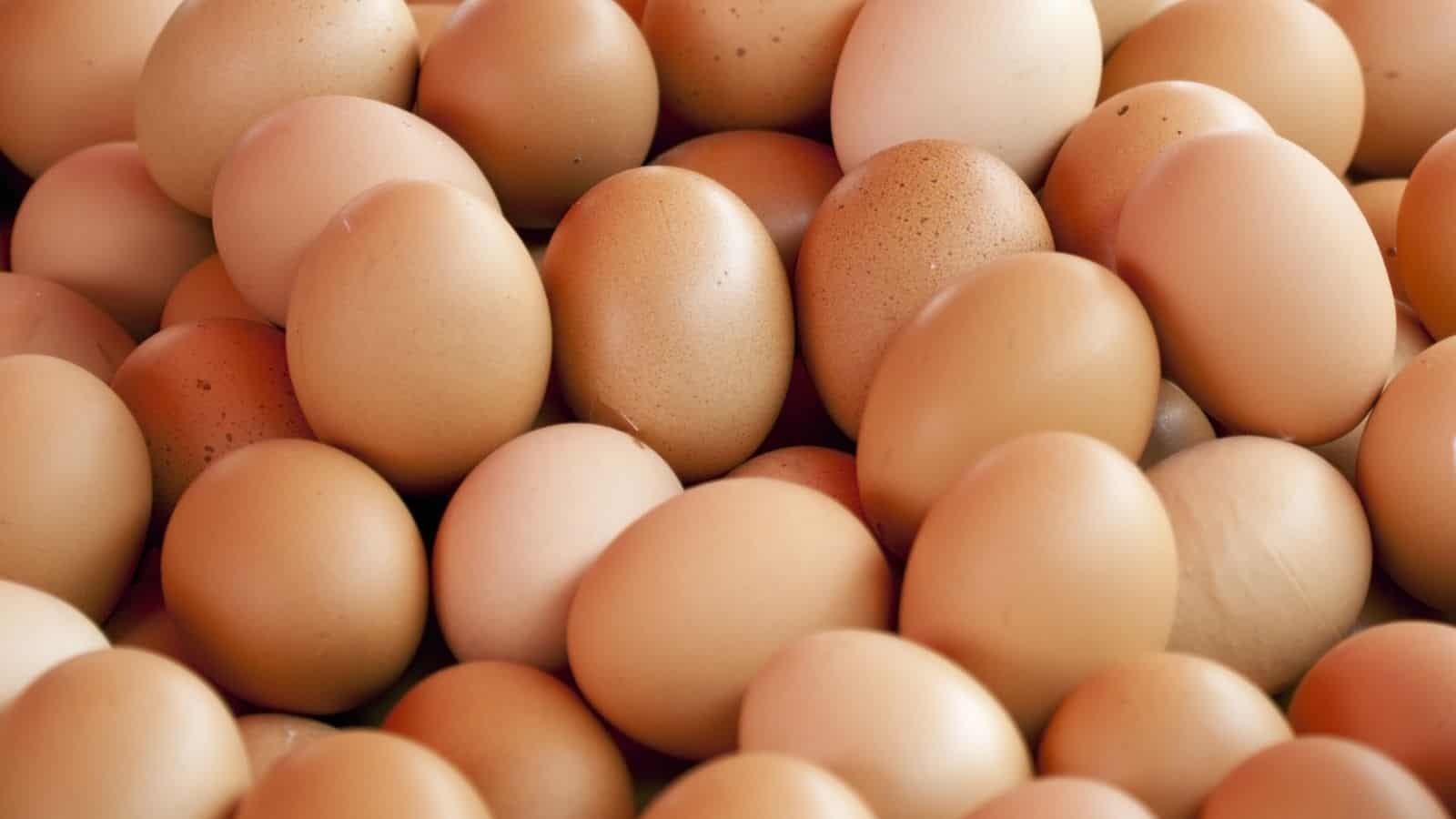
Cooked eggs can be frozen, but eggs in their shells shouldn’t be. Freezing them can cause their shells to crack, so make sure they’ve been cracked or cooked before placing them in the freezer to avoid wasting them.
Cream-based Sauces

Cream-based sauces don’t freeze well. They often separate, resulting in an unpleasant, grainy texture. Dairy proteins can also coagulate when frozen, so it’s best to store them in the fridge after they’re opened.
Yogurt
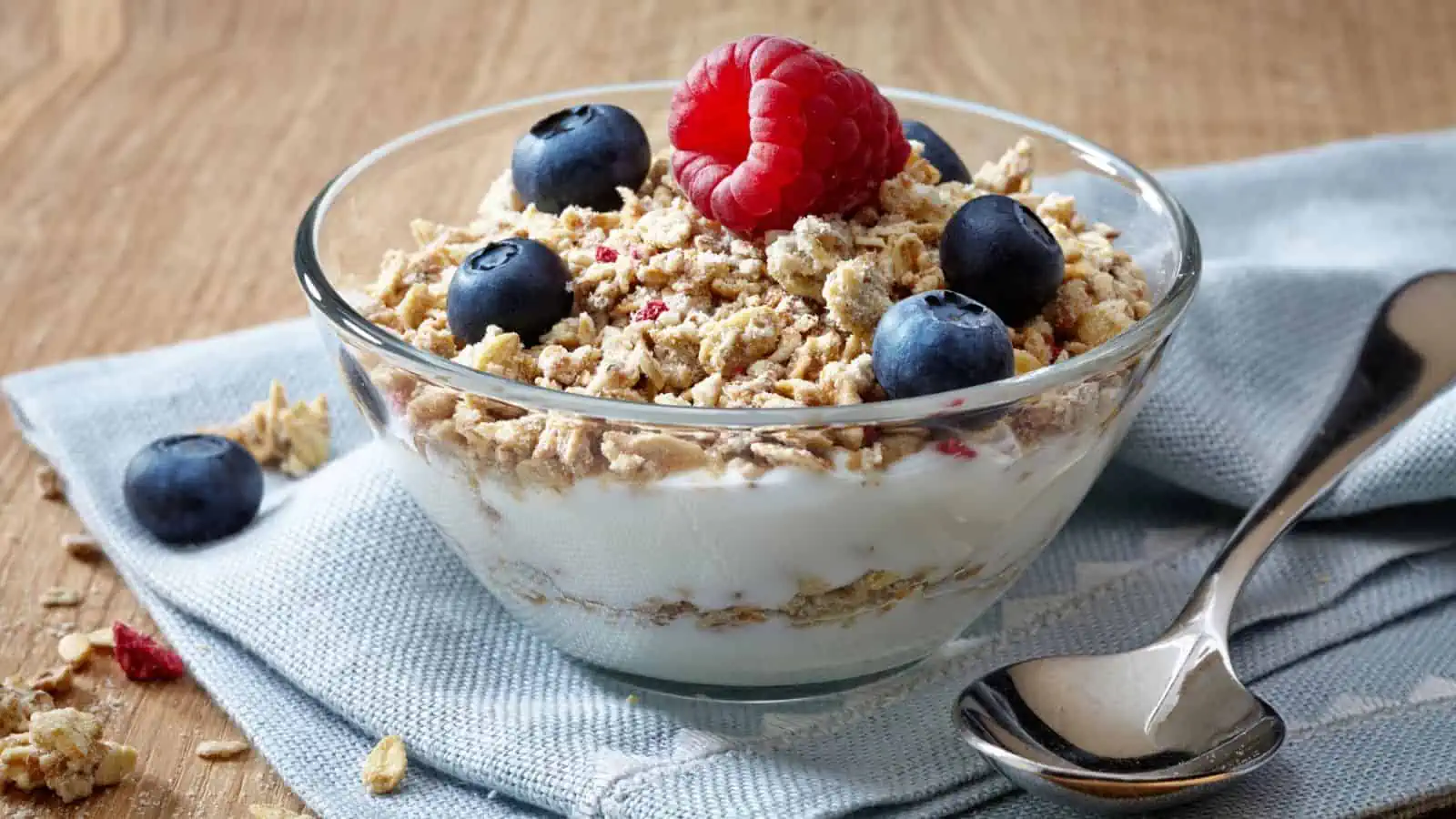
Yogurt can be frozen, but its texture will change, becoming thinner and less creamy. This makes it okay for use in cooking or smoothies but not for other desserts, so if you need to freeze it, pour it into ice cube trays.
Fried Foods

Fried foods don’t freeze well. TastingTable explains that when fried food is defrosted, it has a soggy coating, ruining its “signature crispy texture.” It explains that “moisture is the enemy of crispiness,” so keeping fried food dry is essential.
Soft Cheeses
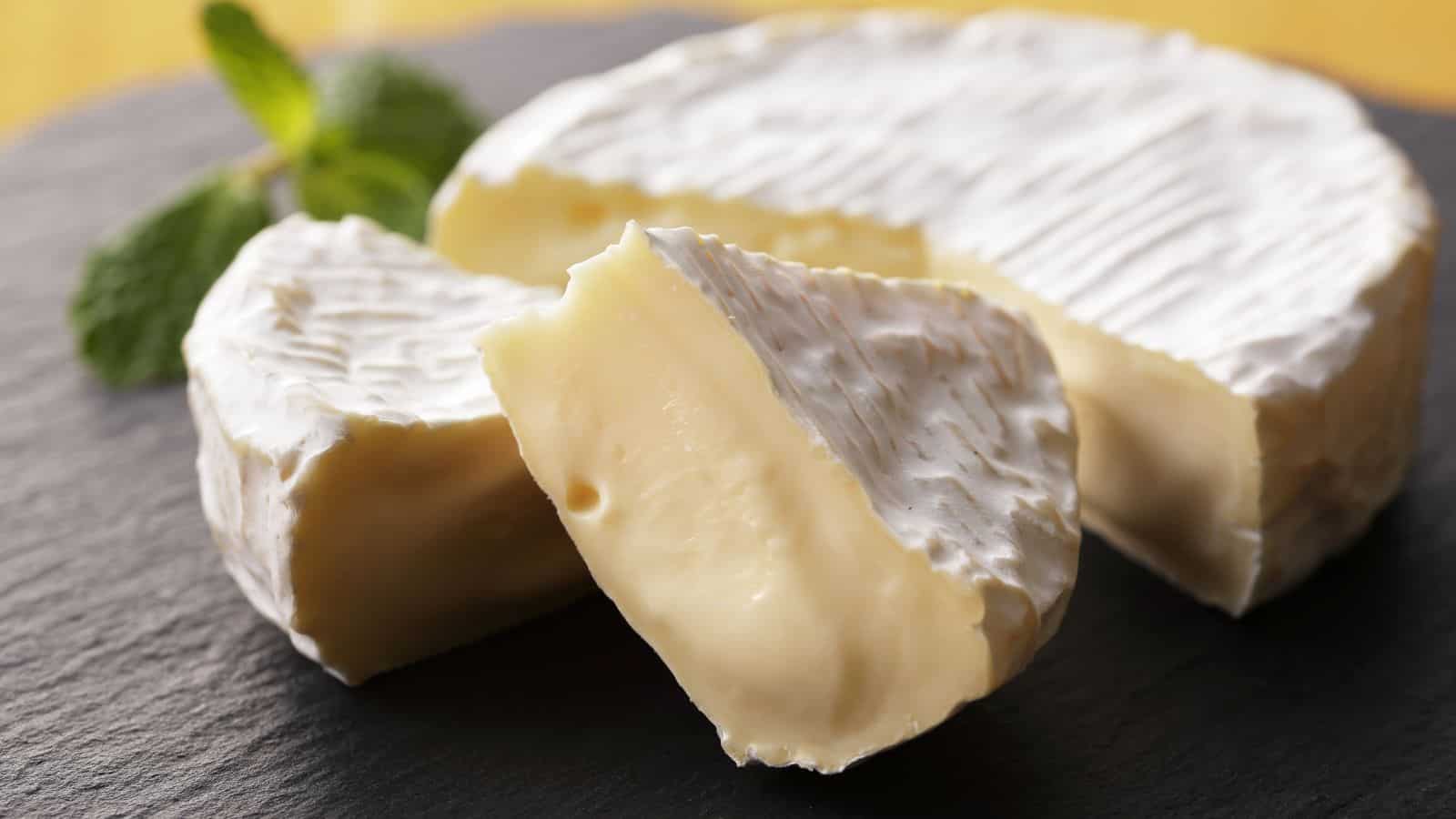
The high moisture content of soft cheeses makes them unsuitable for freezing. They can lose their distinct flavor and creamy texture by becoming crumbly, so storing them in the fridge is best.
Cucumbers and Celery

Cucumbers and celery have a high water content that makes them susceptible to mushiness after they’re defrosted. They’ll also lose their crispness and texture when frozen, so storing them in the fridge is better.
Mayonnaise-based Dressings
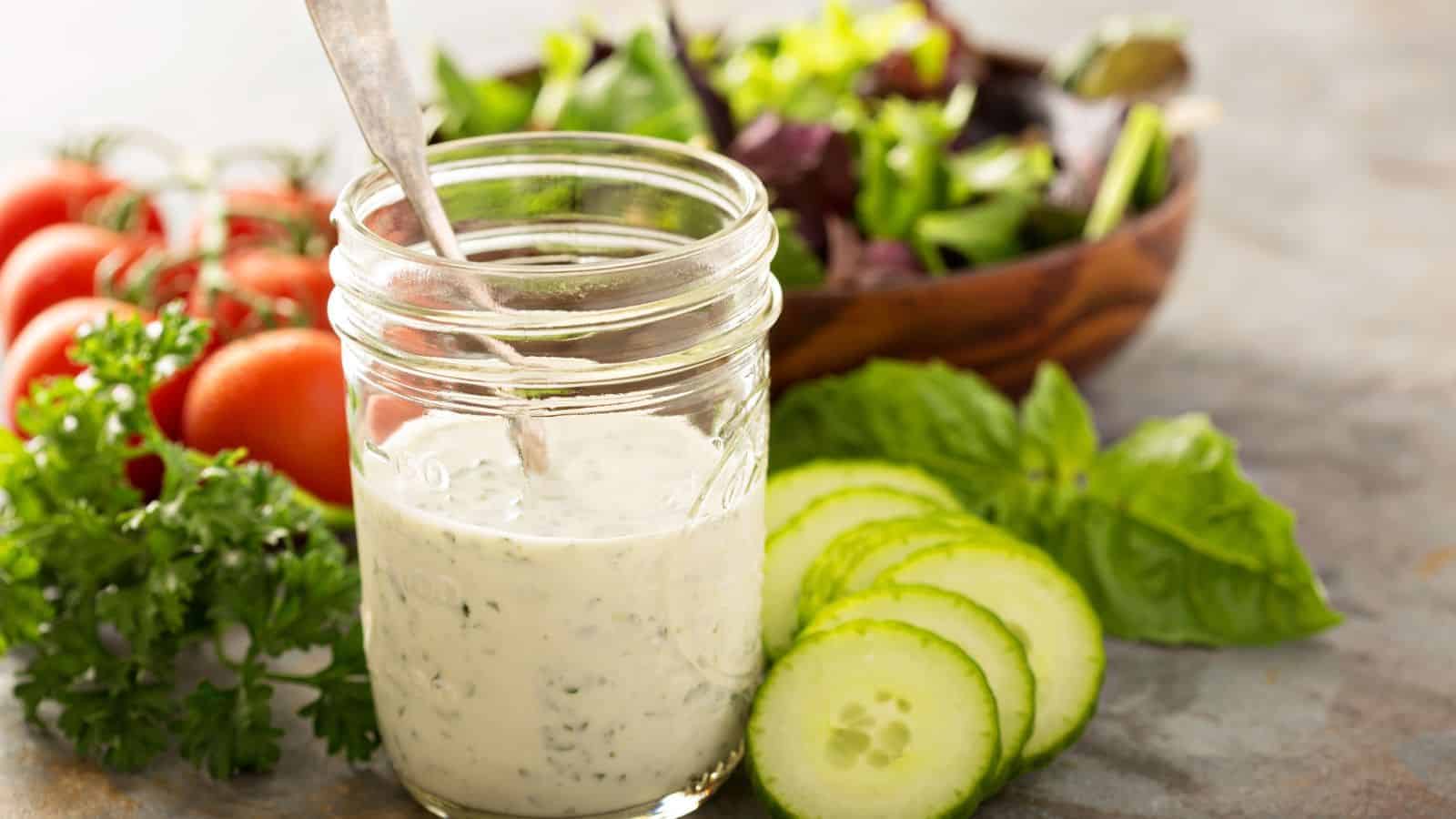
When mayonnaise-based dressings are frozen, their emulsion breaks down, causing them to separate. They can become watery and lose their flavor and texture, so they should be stored in the fridge after opening them.
Milk

Good Housekeeping explains that “the freezing and thawing process can cause the milk to separate and turn grainy,” affecting its texture. If it needs to be frozen, pour it into smaller containers, like an ice tray. It can be re-emulsified in a blender for 30 seconds if it separates.
Jams and Jellies

Jams and jellies can be frozen, but storing them in the fridge is better. Their sugar can crystallize, which alters the flavor, and thawing may negatively affect their spreadability, making the jam useless for toast and scones.
Fresh Herbs

When frozen, fresh herbs like coriander and basil can lose their vibrant color and flavor. When thawed, they can become wilted and mushy, making them unpalatable, so it’s best to store them in the fridge.
Cooked Rice
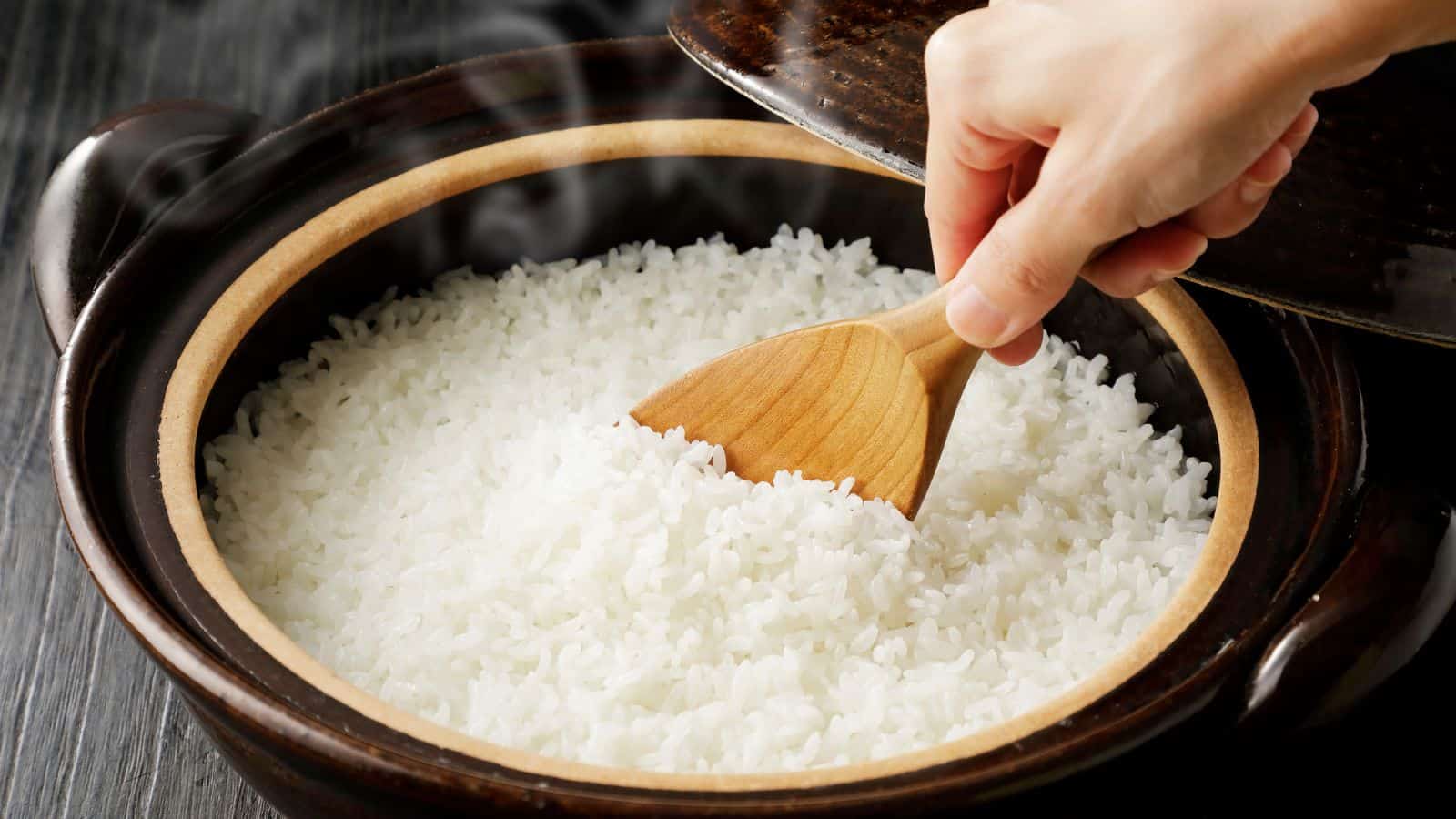
Cooked rice often becomes mushy and loses its firm texture when frozen. It can also absorb excess moisture, causing it to clump. Although it can be frozen for up to a month before it loses its flavor, it’s better stored in a tightly covered container in the fridge.
Sauces Thickened with Cornstarch

Cook’s Info explains that “cornstarch doesn’t freeze well; sauces and fillings made with it can turn spongy when frozen.” This can ruin leftovers that have been put in the freezer, so it’s best to avoid freezing these sauces.
Avocados

Avocados’ high water content can lead to a mushy texture after they’re defrosted. Browning and flavor degradation can also occur, so avoid storing them in the freezer to keep their creamy consistency and fresh taste.
Soft Cakes and Pastries

Soft cakes and pastries shouldn’t be frozen. Their frostings and fillings can separate and become dry and crumbly, so it’s best to store them in airtight containers in your kitchen or pantry.
Up Next: 19 Things You Didn’t Realize Are Against The Law

Most laws are common sense, like those involving theft, property damage, or violence, but there are many lesser-known regulations that most people aren’t even aware of. This article reveals 19 illegal acts that may inadvertently turn you into a common criminal. Remember, ignorance of the law is no excuse for breaking it!
19 Things You Didn’t Realize Are Against The Law
18 Most Common Reasons Why Women Leave Their Husbands

All women have different preferences when it comes to their relationships and marriages. However, there are many universal behaviors, traits, and habits that commonly drive them to divorce. This list unveils the 18 most common reasons why women leave their husbands.
18 Most Common Reasons Why Women Leave Their Husbands
17 Behaviors That Make People Think Less of You

If you want to be accepted by those around you, you have to behave in certain ways. Obviously, you should still be yourself, but there are certain social ‘rules’ people should abide by, like avoiding these 17 behaviors that make people think less of you.
